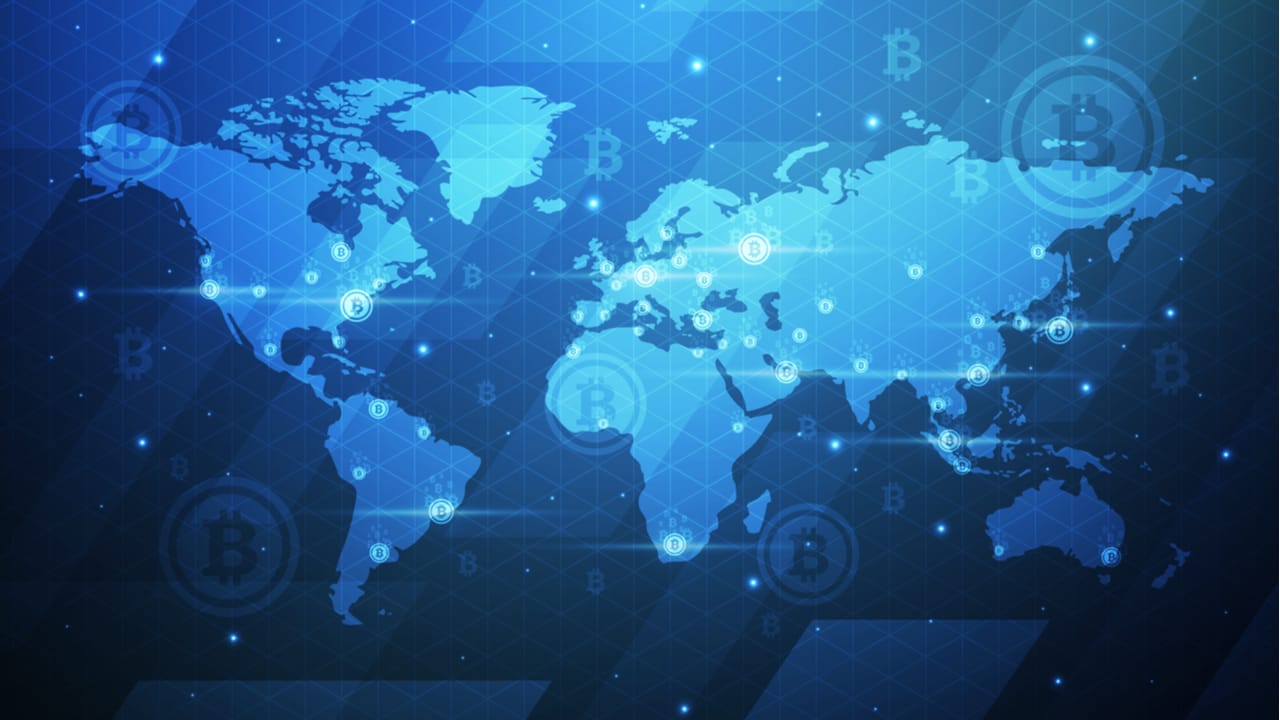Claim your free €20 Bitcoin bonus now! Just verify your ID. Weekly payouts every Friday! Don't invest unless you're prepared to lose all the money you invest.
How cryptocurrency breaks down the barriers for a borderless world
June 18, 2019

Decentralisation is truly the greatest trend that has affected all of us since the turn of the 21st century. The biggest industries in the world have been transformed by decentralisation, creating far greater outcomes for users in consumer technology, media and now, finance. Cryptocurrency is making waves in the advocation for decentralisation within the financial industry, providing solutions for cross border transactions and transparent, immutable data via blockchain technology.
The goal of becoming “borderless” is a fast progressing reality, not just for the first, but also the developing world. So what is the borderless evolution and why is it happening today? And what happens when the once strict borders of personal finance reduce geographic borders?
What does a borderless world look like?
Borderless as a word can be defined as “lacking edges, limits or boundaries”. In this article, we will be discussing borderless as a means for global financial solutions using blockchain technology.
When talking about borderless in financial terms, we can see that as money becomes abstracted into the cloud (like most tech developments), it becomes incredibly hard to control or distort. By moving from the physical world (of money) to the digital world (of data), we remove costs that have been applied across the global monetary system since the end of WWII.
A huge advocate in the fight for a borderless world is Andreas Antonopolus (basically the father of blockchain science). In 2017 when asked . He answered; “I’m afraid to tell you that that world is gone. When I go through an airport I transport zero currencies because Bitcoin doesn’t have a physical location…the bitcoin lives on the blockchain network, so when I arrive at Schiphol (Amsterdam Airport), the money is already there!”.
“You do not transmit money anymore…it’s in the cloud”.
Andreas Antonopolous
Blockchain network has abstracted money into data and made it universally available to verify the need for each nation-state to have property & customs laws, that are then monitored by expensive government infrastructure, is almost obsolete. – and so in a borderless world, governments can actually save expenditure on expensive programs designed to control capital & property – they now just verify and prosecute based on the blockchain.
Although we are probably a decade away from the end goal of efficient borderless solutions, further technological and financial advances are pushing us closer to widespread adoption of a borderless world.
Cross-border payments
The idea and prospect of being borderless with Foreign Exchange is the most compelling case for the borderless movement. FinTech companies are the best use case example of this in that they generally allow you to set up Bank Accounts in four different jurisdictions (US, UK, EU and Australia), set you up with a debit card, and allow you to hold a number of currencies in one account. By doing this they allow a regular traveller or business operator to move across borders in a seamless fashion. But there are still capital controls and tax issues that for a lot of individuals still impair this experience.
Neobanks have also been successful at moving towards this borderless offering, however, they still require a home mailing address for registration and sometimes only a select group of nationalities may qualify to apply.
How cryptocurrency can facilitate a borderless world
Digital currency accounts like have a role to play in that they provide interfaces for you to access your digital currency accounts and wealth. You can exchange your fiat currency into cryptocurrencies such as Bitcoin. Cryptocurrency is universally starting to have greater applications in the real world, recent developments allow you to use that cryptocurrency with a debit card, therefore making your money universally transferable and accessible across the globe.
Use-Cases
For the development of “borderless” and its world of applications to become a reality, we need the existing barriers to break in the financial services industry, particularly around card development and brick & mortar merchants. In the meantime, there are a few specific use-cases surrounding a borderless world that we can focus on. From individuals to corporations, there are many ways in which borderless can be beneficial.
Small scale
We can benefit on an Individual level from a borderless world in many different ways, particularly as blockchain has primarily become a retail movement. A good example of this is a traveller spending time exploring their way through Europe, or an individual working in the City of London on a Visa. Both require an easy form of access to money, whether it be sending or receiving funds from home or using it on the go for day-to-day purchases. Exchange rates and middlemen serving as exchange intermediaries tack on hefty fees for their currency exchange services. Having your funds accessible in one place without loosing out to intermediaries is a crucial interface for the borderless world to become a reality.
Large scale
For any small to medium business that may operate in the tourism, eCommerce or Digital services industries, the use of blockchain technology offers the opportunity to expand your customer base, avoid centralised payments processors, reduce transaction fees significantly and use Bitcoin to improve the openness of your brand. While there are still limited options for small to medium businesses, the majority of transactions would no doubt be handed in-app for the retail experience, creating an immense opportunity for tech startups especially those looking to break into foreign markets.
Global scale
The unbanked population is globally a major portion of the developing world that is underserviced in their banking needs, whether it be physical banking locations, payment services, cross border transfers or merchant options because they’re disproportionately poor or rural. These are the people that Roger Ver sheds his crocodile tears for. For this group of people who have widespread access to cheap, yet powerful, smartphones – the majority of their banking is done through financial service providers locally. This means they’re by far the greatest use-case likely to benefit from a borderless world.
Summary
The idea of being borderless is a reality that those in the blockchain/cryptocurrency space are striving towards, there are major technological developments that are happening and product offerings that get us to this near future. What we can be sure of is that the next decade will continue to reduce friction for users in moving their wealth across borders, opening up a “borderless” future.
Don’t invest unless you’re prepared to lose all the money you invest. This is a high‑risk investment and you should not expect to be protected if something goes wrong. Take 2 minutes to learn more: .
Cryptoassets traded on CoinJar UK Limited are largely unregulated in the UK, and you are unable to access the Financial Service Compensation Scheme or the Financial Ombudsman Service. We use third party banking, safekeeping and payment providers, and the failure of any of these providers could also lead to a loss of your assets. We recommend you obtain financial advice before making a decision to use your credit card to purchase cryptoassets or to invest in cryptoassets. Capital Gains Tax may be payable on profits.
CoinJar’s digital currency exchange services are operated in Australia by CoinJar Australia Pty Ltd ACN 648 570 807, a registered digital currency exchange provider with AUSTRAC; and in the United Kingdom by CoinJar UK Limited (company number 8905988), registered by the Financial Conduct Authority as a Cryptoasset Exchange Provider and Custodian Wallet Provider in the United Kingdom under the Money Laundering, Terrorist Financing and Transfer of Funds (Information on the Payer) Regulations 2017, as amended (Firm Reference No. 928767).
EU residents: CoinJar Europe Limited (CRO 720832) is registered as a VASP and supervised by the Central Bank of Ireland (Registration number C496731) for Anti-Money Laundering and Countering the Financing of Terrorism purposes only.
On/Offchain
Your weekly dose of crypto news & opinion.
Join more than 150,000 subscribers to CoinJar's crypto newsletter.
Your information is handled in accordance with CoinJar’s .
More from CoinJar Blog
CoinJar Europe Limited (CRO 720832) is registered and supervised by the Central Bank of Ireland (Registration number C496731) for Anti-Money Laundering and Countering the Financing of Terrorism purposes only.
Apple Pay and Apple Watch are trademarks of Apple Inc. Google Pay is a trademark of Google LLC.
This site is protected by reCAPTCHA and the and apply.